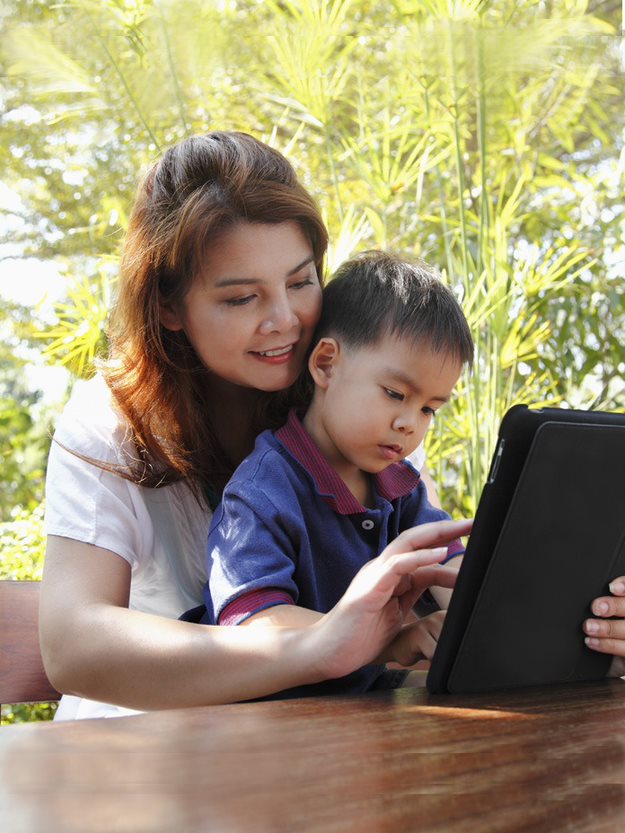Another group or vendor provides the info on the next page. If you don’t want to leave our site, choose the “X” in the upper right corner to close this message. Or choose “Go on to next website” to move forward.
Just contact us. We’re here to help.
Make a plan

Make a plan
Make and practice a disaster plan. This can help keep everyone safe, aware and together. Include an emergency supply kit in your plan, as well as details on:
- What to do and where to go if you have to leave your home
- Where to meet if your family is separated
- How to get emergency alerts and warnings
Some people need special care during an emergency. Make sure you have a plan for everyone, including:
Older adults
Children
Those with disabilities and special needs
Pets
During COVID-19, you’ll want to update your plan. Be sure you include steps to keep your family safe from COVID-19, too. Just check with the Centers for Disease Control and Prevention (CDC) for more info.
In the event of a disaster, make sure you have an emergency supply kit ready when you need it. Prepare your kit to include at least three days of food, water, clothing and medications. You can add any other items based on your family’s needs.
It’s never too early to talk with kids about a disaster plan. Knowing what to expect will help them prepare and have less fear. They'll also learn how to stay safe in the event you aren't with them.
Older adults should also have a plan for emergencies. They will face more challenges staying safe during a disaster. Knowing what to do ahead of time can give them peace of mind and avoid confusion. Put together a plan with helpful details, including:
- A list of medications you'll need (including those you must order in advance), their dosage and doctors or pharmacies
- Phone numbers and addresses for local services, like shelters and the electric company
- Any medical items to keep on hand (like a wheelchair, cane or catheters)
- Emergency equipment to have ready in case you need it, such as oxygen supplies (check with supplier about emergency plans)
Disabilities can make it harder to prepare for and respond to emergencies. Often, people with disabilities need extra lead time when a disaster strikes.
If you or someone you know needs help, be sure to plan ahead. You’ll likely need to take extra steps to properly prepare.
Help those with disabilities plan for an emergency
Disaster Safety for People with Disabilities
Your disaster plan should include your pets, too. The best way to prepare is to pack a pet “go bag”. Make sure it includes food, medications, documents and other items your pets may need. If you have to leave your home, don’t leave your pets behind. Be sure to take them with you.
Here are some other steps you can take to keep your pets safe:
Bring pets indoors.
Find a pet-friendly hotel in case you need to relocate.
Make sure your pets are current on vaccines. Pet shelters may require proof of vaccination.
Have current photos of your pets.
Keep a collar with an ID tag on your pets.
Have a leash or pet carrier ready.
Have enough food, water and newspapers or trash bags for clean-up.
You’ll want to seek shelter before a disaster happens. If you have to leave your home, make sure you know a safe place to go. The more options, the better.
You may find shelter by staying at:
The home of a family member or friend
A hotel
An emergency shelter
June 1 to November 30 is hurricane season each year in Florida. August and September are the months most likely for a storm to occur. Explore these links to make sure you and your loved ones are prepared.
June 1 to November 30 is hurricane season each year in Florida. August and September are the months most likely for a storm to occur. Explore these links to make sure you and your loved ones are prepared.
Check these links for more info on preparing for emergencies.
Disaster preparedness resources
Portable generator safety tips (PDF)
Medication refills
Questions about your medications? You can call your local pharmacy for more info. If a disaster or emergency affects your area, you may be able to get an early refill.
Telehealth
In an emergency, you may not be able to see your doctor in person. But you can meet with your doctor by video on your computer. This is called telehealth. It’s ideal when you need to treat common health problems. Cold or flu? Great reasons to use telehealth. You can also get help with allergies, sinus problems and more.
We’re here to help
Need help finding a provider or pharmacy during or after an emergency? Just call your plan’s Member Services.
- Medicaid Managed Medical Assistance (MMA): 1-800-441-5501 (TTY: 711)
- Florida Healthy Kids (FHK):
1-844-528-5815 (TTY: 711) - Long-Term Care (LTC):
1-844-645-7371 (TTY: 711)
